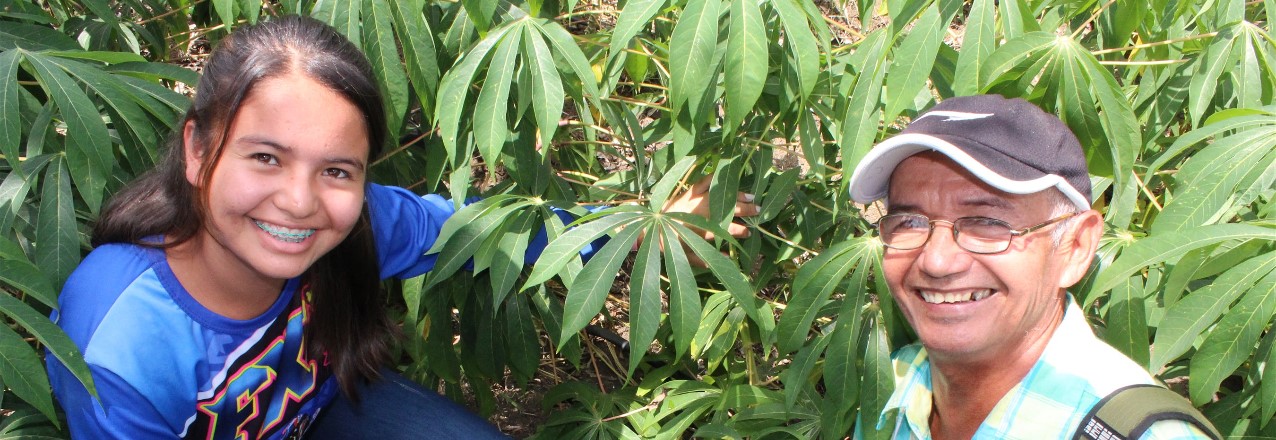A partnership in cassava attempts to strengthen production and address the generational labor gap.
Mario Enamorado noticed a positive change in the appearance of the cassava from his last harvest. The change, he surmised, came after participating in a Farmer Field School, where he learned methods of organic preparations and green fertilizers and pesticides. He admits it has not been easy to make changes. He is 68 years old, and for the past 50 years, he has been using agrochemicals to combat pests, because that is what his father did.
These farmer field schools represent one of the strategies of a Public-Private Partnership in the cassava value chain—signed in March 2017—with the support of USAID to increase opportunities for some 140 farmers in Montes de María. The partnership targets cassava for industrial use, and is developing rural capacities in production and processing, in coordination with private sector allies, Almidones de Sucre and the cassava growers’ federation, Colfeyuca. In addition, the partnership has a wide range of support from the public sector, including Sucre departmental government, Sincelejo Chamber of Commerce, and national training organizations like SENA and Corporica (the National Institute for Agricultural Research).


